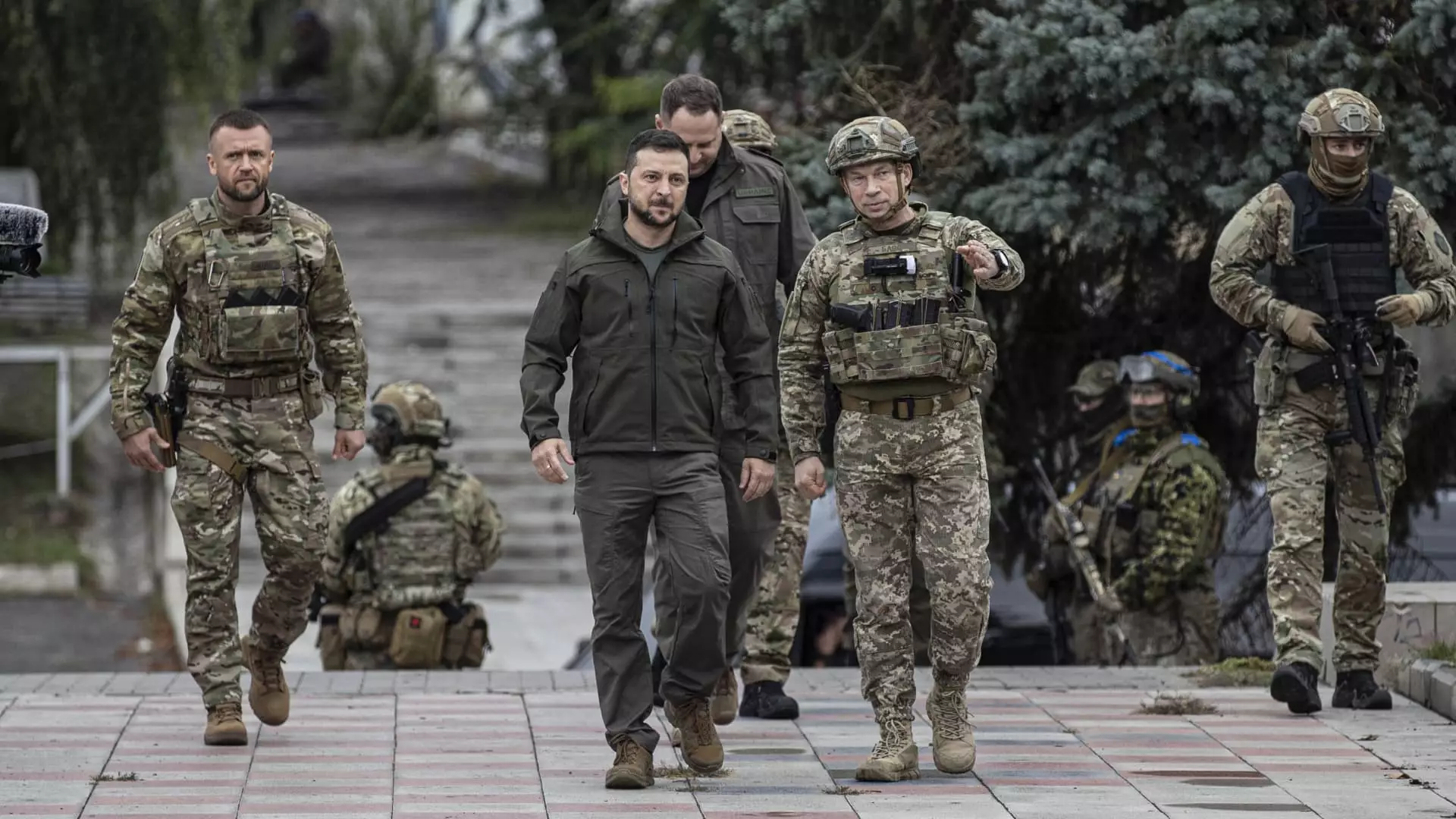In a bold and risky move, Ukrainian President Volodymyr Zelenskyy has replaced his top military commander in a dramatic shake-up of the country’s armed forces. This decision is seen as one of Zelenskyy’s “biggest gambles” to date, as it comes amid months of speculation about the future of Gen. Valeriy Zaluzhnyi and reported tensions between Zelenskyy and Zaluzhnyi over strategy. The change in leadership marks the most significant shift in Ukraine’s military since Russia’s invasion nearly two years ago. Zelenskyy made the announcement on social media, emphasizing the need to renew and improve Ukraine’s defense system. However, the timing of this decision raises concerns, given the current ammunition shortages and delays in Western military aid that Ukraine is facing.
The decision to replace Gen. Zaluzhnyi reflects the urgent need for a change in tactics. Ukraine’s forces have struggled to achieve major breakthroughs on the battlefield in recent times. While Zaluzhnyi was initially credited for playing a pivotal role in Ukraine’s defensive stand against Russia, he later expressed the view that the war had reached a stalemate. Zelenskyy disagreed with this assessment and rebuked Zaluzhnyi for his comments. The decision to remove him highlights Zelenskyy’s willingness to take calculated risks in order to improve Ukraine’s military strategy.
Zelenskyy’s decision to replace Zaluzhnyi comes with significant challenges. Ukraine is currently facing ammunition shortages, which are further exacerbated by delays in Western military aid. These constraints have forced Ukrainian commanders to shift their focus from offensive operations to active defense. If the military situation worsens in the coming months, Zelenskyy will bear the brunt of the responsibility. The timing of Zaluzhnyi’s removal is seen as unfortunate, considering the difficult circumstances Ukraine is already facing.
Col. Gen. Oleksandr Syrskyi has been appointed as the new head of Ukraine’s armed forces. Syrskyi is one of Ukraine’s most experienced commanders and has overseen several notable successes, including the defense of Kyiv and the Kharkiv counteroffensive. However, he has also faced criticism for his role in the battle for Bakhmut, which resulted in heavy casualties for both Russia and Ukraine. Syrskyi’s appointment raises questions about Zelenskyy’s decision-making process and whether it prioritizes political considerations over the country’s wider interests.
Zelenskyy’s decision to replace his top military commander has political implications. It is widely perceived as an attempt to sideline a potential political competitor and prioritize Zelenskyy’s own goals over the country’s interests during this critical phase of the war. This move sends a message of divisions and competition at the highest levels, which may negatively impact Ukraine’s international allies and their willingness to provide continued assistance. The optics of this decision do not bode well for Ukraine, as its allies are already struggling to find consensus on how best to support the country.
Analysts at the Institute for the Study of War argue that changes in military leadership are normal for states engaged in prolonged conflicts. Zelenskyy, Zaluzhnyi, and Ukrainian Defense Minister Rustem Umerov have all acknowledged the changing dynamics of the war between 2022 and 2024. They recognize the need for new approaches and strategies to adapt to the evolving situation. While Zelenskyy’s decision may be controversial, it reflects a recognition that Ukraine cannot afford to remain stagnant in its defense efforts.
Zelenskyy’s decision to shake up Ukraine’s military leadership is a risky move with potential political ramifications. The timing of the decision, paired with the current challenges faced by Ukraine, raises concerns about the effectiveness of this leadership change. However, it also highlights the need for new approaches and strategies in order to navigate the evolving dynamics of the war. Ukraine’s success in the coming years will depend on the ability of its leaders to adapt, make necessary changes, and unite the country in its defense efforts.

Leave a Reply